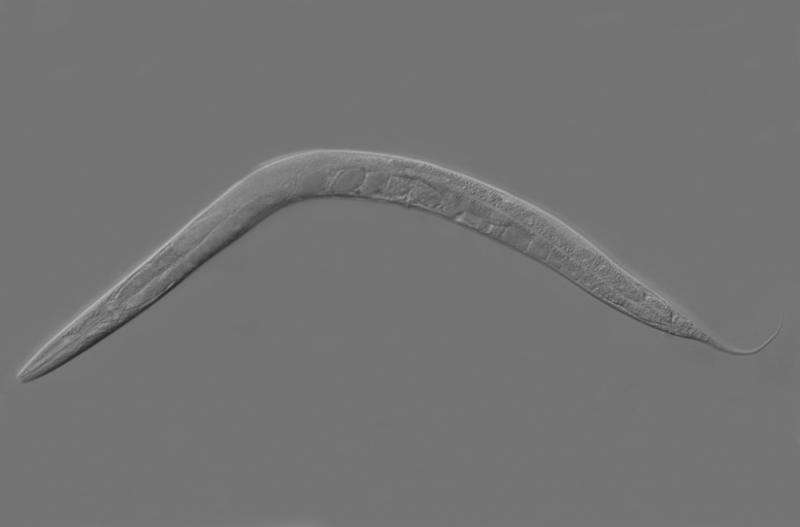
Common drugs such as antidepressants enter the environment via sewage. In her PhD research, Toxicologist Merel van der Most has shown that this affects the behavior of nematodes. These drugs may also be harmful to many other aquatic creatures. Van der Most will receive her PhD at Wageningen University & Research on Wednesday 4 September.
When people take antidepressants, not all of the drug’s components are absorbed by the body. Some are excreted, and sewage treatment has proven unable to remove all drug residues from wastewater. This way, some of the active substances, such as fluoxetine and sertraline, end up in the living environment of fish, insects and mammals.
Van der Most, who performed her Ph.D. research at the Toxicology Chair Group, wanted to find out whether these two substances from antidepressants cause animals to change their behavior. She used the nematode Caenorhabditis elegans, a roundworm, as a subject.
“This worm is an interesting model for this kind of research,” Van der Most says. “After all, a lot is already known about its genetics, metabolism and behavior. Moreover, the nervous systems of many different animals, including mammals, handle these active substances from antidepressants in a similar way to that of C. elegans.”
Roundworms adapt their behavior
First, Van der Most investigated whether the substances were absorbed and converted in the animal and found that was indeed the case. “In other experiments, I noticed that nematodes that were exposed to different concentrations changed their behavior. They started moving more slowly, even at concentrations similar to what can be found in some places in the environment.
“The worms were also less inclined to move towards a substance they normally find extremely attractive.” She saw the strongest effect after about 12 hours; it subsided again after 24 hours.
Nematodes are frequently used in toxicological studies to demonstrate the harmful effects of substances. According to Van der Most, the tests she carried out are suitable for assessing the risks posed by antidepressants to animals exposed to them. “They complement other toxicological tests, such as methods using cells, computer models and other model organisms.”
The long-term effects of antidepressants on populations of roundworms and other wildlife are not yet known. However, more and more studies are showing that drug residues can harm aquatic life. Van der Most states, “Knowledge and reliable methods of assessing these risks could help to improve wastewater treatment in the future.”
Citation:
Worm study shows risks posed by antidepressants in water (2024, September 4)
retrieved 4 September 2024
from https://phys.org/news/2024-09-worm-posed-antidepressants.html
This document is subject to copyright. Apart from any fair dealing for the purpose of private study or research, no
part may be reproduced without the written permission. The content is provided for information purposes only.







